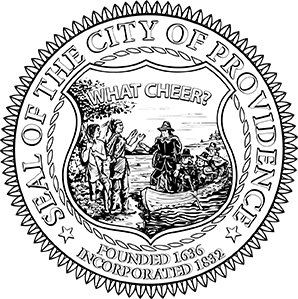March 29, 2021
PROVIDENCE, R.I. — Mayor Jorge O. Elorza today joined 1696 Heritage Group Vice President Keith Stokes, Truth-telling and Reconciliation Subgroup Members Raymond Two Hawks Watson and BJ Murray, Senior Advisor Shawndell Burney-Speaks and community members to announce the African American Ambassadors Group (AAAG) Truth-Telling report: A Matter of Truth. The report includes a comprehensive analysis of the role of the City of Providence and State of Rhode Island in supporting a “separate and unequal” existence for African heritage, Indigenous, and people of color.
“Today, the City of Providence is one step closer to understanding and acknowledging the depth of our history of racial injustice, and its unfortunate continued impact on our Black and Indigenous residents,” said Mayor Jorge O. Elorza. “As outlined in this report, African heritage and Indigenous people were subjected to overt racism and mob violence by their fellow citizens, but one of the greatest threats they faced came not from individual actors, but from laws and policies promulgated by our own governments and private institutions. While I do not anticipate the City alone can repair generations of pain, violence, and systemic oppression suffered by our African heritage and Indigenous residents, we can bring our communities together to heal by discussing and accepting these uncomfortable truths. I want to thank our African American Ambassador Group and local historians for leading us through this stage of the Truth-Telling, Reconciliation, and Municipal Reparations process.”
The Report begins in pre-1600 and concludes with the African heritage legacy continued beyond 2020. It identifies the extent of the manipulation of race as a means of controlling enslaved individuals of African heritage and the role of institutions and lawmakers in perpetuating discriminatory and racist policies.
The City partnered with the Rhode Island Black Heritage Society, Rhode Island Historical Society, 1696 Heritage Group, and the Providence Preservation Society to work with the AAAG Truth-Telling Subgroup, comprised of nearly 20 community members from the larger African American Ambassador Group, to collect and analyze historical collections, documents, and artifacts that define the African heritage and Indigenous people’s history within Providence and Rhode Island.
“The report, A Matter of Truth, reveals four centuries of the recorded and documented history of a ‘Separate and Unequal existence for African heritage, Indigenous, and people of color in Providence and Rhode Island through the scholarship of many historians, academic, and historical institutions,” said Keith W. Stokes, 1696 Heritage Group. “This history is essential, not only because it tells us about the past, but will help to create an environment and future policy platforms for positive change that fosters fairness, equity, and justice.”
The City also unveiled a Request for Proposals to launch the Reconciliation phase of the City’s commitment to Truth-Telling, Reconciliation and Municipal Reparations after receiving a $100,000 grant from the Nellie Mae Education Foundation. Community Reconciliation will include several months of engagement and discussion across the community, reflecting on the information discovered and the research compiled during the Truth Telling Phase. Community meetings, interactive experiences, and one-on-one engagement will publicly recognize and discuss the past and present wrongs uncovered in the Truth-Telling report and address their continued impacts on BIPOC (Black Indigenous People of Color) communities; design and recommend a Reconciliation policy structure that lays the groundwork for implementing quality of life improvements; highlight the contributions of BIPOC communities to the historical, social, cultural, and economic advancement of the City of Providence; and celebrate the resilience and perseverance of BIPOC communities throughout history.
This work was developed with the Mayor’s African American Ambassador Group, which meets weekly and serves as a direct line of communication between the community and the Administration. What originally began with faith leaders as a means to ensure equitable access to COVID-19-related care and resources has since expanded, establishing subcommittees focused on recommending strategies to increase equity citywide. Those interested in engaging in the subcommittees of the AAAG are encouraged to complete this form.

